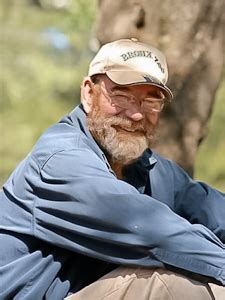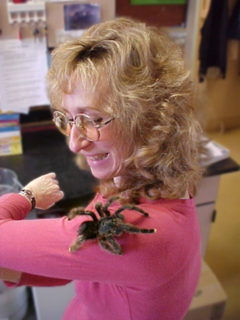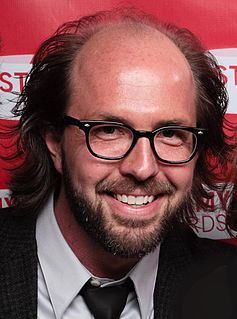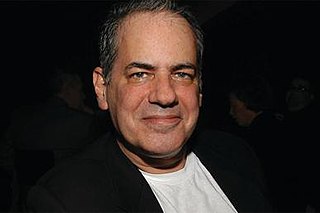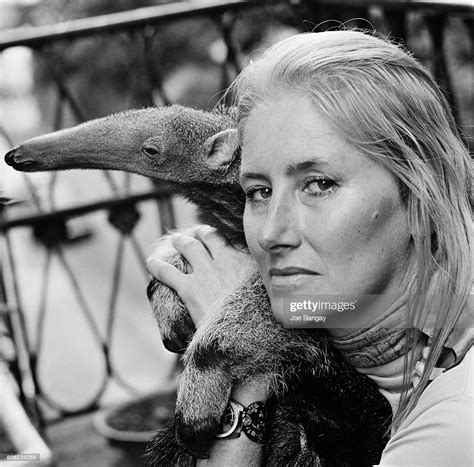A Quote by David McCullough
There is a human longing to go back to other times. We all know how when we were children we asked our parents, "What was it like when you were a kid?" I think it probably has something to do with our survival as a species.
Related Quotes
In 1990, when we started the Black Community Crusade for Children, we were always talking about all children, but we paid particular attention to children who were not white, who were poor, who were disabled, and who were the most vulnerable.Parents didn't think their children would live to adulthood, and the children didn't think they were going to live to adulthood. That's when we started our first gun-violence campaign. We've lost 17 times more young black people to gun violence since 1968 than we lost in all the lynching in slavery.
The human longings that are deep inside of us never go away. They exist across cultures; they exist throughout life. When people were first made, our deepest longing was to know and be known. And after the Fall, when we all got weird, it's still our deepest longing - but it's now also our deepest fear.
Women are far more likely to follow orders to evacuate, especially women with children. At the same time, women were much more likely to die during the South Asian tsunami. In some villages it was 3 to 1. And that was party because of the average strength it takes to hold onto something. Also it was cultural; women were less likely to know how to swim, as were children. So much of this is based on how we develop our own survival skills before something goes wrong: Even if nothing goes wrong, it might be good to know how to swim.
...I think we should find some kind of shelter; a cave or something." "I don't want to do that! What if there's like, a creature living in the cave?" Tiara said. "Seriously, I saw this show once where these people were stranded on an island and there were these other people who were sort of crazy-slash-bad and there was this polar bear creature running around." "What happened?" Miss Ohio asked. "I don't know. My parents got divorced in the middle of season two and we lost our TiVo.
Happiness is not like we were walking around fingering razor blades or anything like that. But it just sort of seems as if - we sort of knew how happy our parents were, and we would compare our lives with our parents and see that, at least on the surface or according to the criteria that the culture lays down for a successful, happy life, we were actually doing better than a lot of them were.
We have to remember that we're no longer competing for anything anymore. We're not competing for life and death. Now we need to go back to when we would raise our children together and be able to have that strong unit of community, which is our strength. So women together, as a tribe, to me, are the strongest force. But we were put in a position to have to compete with each other, and that's got to stop. We've got to know that whenever that creeps up in our head, that that's not our true nature. That was something that was embedded in us, and that needs to start to go away.
It was not that I disliked people; some of them were interesting and kind. But even the nice ones were no more compelling or important to me than other creatures. Then, as now, to me humans are but one species among billions of other equally vivid and thrilling lives. I was never drawn to other children simply because they were human. Humans seemed to me a rather bullying species, and I was on the side of the underdog.
There are times it's the only thing I want and I wonder how I'll ever go back to the world of noise and distraction. Other times, silence allows me to hear what's really going on in my head. Part of the reason we're on our phones or watching television or reading magazines is to give our heads something else to listen to other than our own thoughts.
I am dedicating the majority of my wealth to improving education. It is the key to the survival of the human race. We have to plan for our collective future - and the first step begins with the social, emotional, and intellectual tools we provide to our children. As humans, our greatest tool for survival is our ability to think and to adapt - as educators, storytellers, and communicators our responsibility is to continue to do so.
Late one afternoon when returning from town we were met by a few women and children who told us that Mexican troops from some other town had attacked our camp, killed all the warriors of the guard, captured all our ponies, secured our arms, destroyed our supplies, and killed many of our women and children.. when all were counted, I found that my aged mother, my young wife, and my three small children were among the slain.
We were the children of white flight, the first generation to grow up in postwar American suburbs. By the time the ’60s rolled around, many of us, the gay ones especially, were eager to make a U-turn and fly back the other way. Whether or not the city was obsolete, we couldn’t imagine our personal futures in any other form. The street and the skyline signified to us what the lawn and the highway signified to our parents: a place to breathe free.
I saw certain things that I think maybe other kids are protected from. Like, I saw my parents struggling. I knew that we were cutting out coupons and buying dented cans because they were cheaper. And all our furniture was from the garbage. It was just - and to me because I was a kid, all that stuff was really exciting.
It is our genetic nature as a species to believe as young children that our parents and elders are right. We watch them to see what's what. Later on we can judge for ourselves and rebel if need be, but when we're just months old, or a year or two, and a parent looks at us with impatience, or disgust, or disdain, or just leaves us there to cry and doesn't answer us even though we're longing to be embraced and nurtured, we assume that something must be wrong with us. Unfortunately, at that age it's impossible to think there might be something wrong with them.






